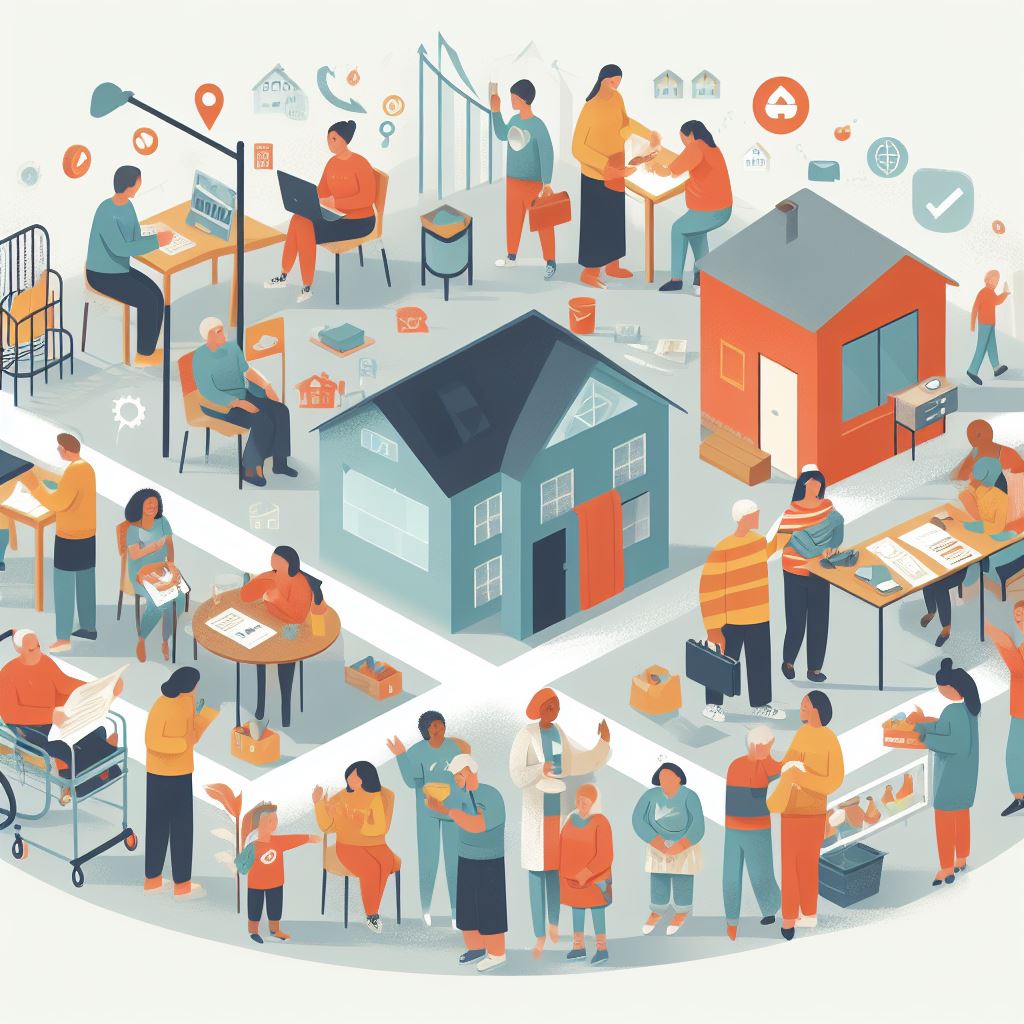Understanding Tenant Obligations in Subsidized Housing

So you’ve found a great deal on subsidized housing. But before you kick back and relax, there are a few things you need to know. Understanding your tenant obligations is crucial to maintaining a harmonious living environment.
From eligibility requirements to lease agreements, rent payments to maintenance responsibilities, this article will delve into the nitty-gritty details.
So buckle up and get ready to navigate the ins and outs of subsidized housing like a pro.
Key Takeaways
- Eligibility requirements for subsidized housing include income level, citizenship or eligible immigration status, and potentially other factors such as age or disability status.
- It is important to carefully read and understand the terms of the lease agreement before signing, including details about lease duration, rent amount, additional fees, rules and regulations, and lease renewal or termination.
- Tenants are responsible for paying rent on time and in full every month, as well as separately paying utilities to the utility companies. Failure to do so may result in penalties or eviction.
- Proper maintenance and upkeep of the unit is necessary, including regular cleaning, checking for damages or leaks, and reporting maintenance issues promptly. Tenants should also contribute to the overall well-being of the housing community.
Eligibility Requirements for Subsidized Housing
To determine if you qualify for subsidized housing, you must meet certain eligibility requirements. These requirements are put in place to ensure that the limited resources available for subsidized housing are allocated to those who truly need them.
One of the primary eligibility requirements is your income level. Generally, your income must be below a certain threshold to qualify for subsidized housing. The specific income limits vary depending on factors such as the size of your household and the location of the subsidized housing program.
Additionally, you must be a U.S. citizen or have eligible immigration status. This requirement ensures that the benefits of subsidized housing are reserved for individuals who are legally allowed to reside in the country.
Furthermore, some subsidized housing programs may have specific requirements related to age, disability status, or other factors. It’s important to thoroughly review the eligibility criteria for the particular subsidized housing program you’re interested in to determine if you meet all the necessary requirements.
Understanding the Terms of Your Lease Agreement
Once you have been approved for subsidized housing, it’s important to understand the terms of your lease agreement. This document outlines the rights and responsibilities of both you, as the tenant, and the housing provider. Take the time to read the lease agreement carefully and ask any questions you may have before signing it.
The lease agreement will typically include information about the duration of the lease, the amount of rent you’re required to pay, and any additional fees or charges. It may also outline the rules and regulations of the housing complex, such as noise restrictions or pet policies. Understanding these terms will help you avoid any potential conflicts or misunderstandings in the future.
Additionally, the lease agreement may include information about the process for renewing or terminating the lease, as well as any penalties for breaking the terms of the agreement. It’s important to be aware of these provisions to ensure that you comply with the terms of your lease and avoid any legal consequences.
By understanding the terms of your lease agreement, you can ensure that you fulfill your obligations as a tenant and maintain a positive relationship with your housing provider.
Now, let’s move on to discussing your responsibilities for paying rent and utilities.
Responsibilities for Paying Rent and Utilities
You are responsible for paying your rent and utilities in subsidized housing. As a tenant, it’s crucial to understand your obligations when it comes to these financial responsibilities.
When it comes to rent, you must ensure that you pay it on time and in full every month. Failure to do so may result in penalties or even eviction. It’s important to note that the amount of rent you pay may be based on your income or a fixed percentage of it. Therefore, it’s essential to provide accurate and up-to-date income information to your housing provider.
Additionally, you’re responsible for paying your utilities, which may include electricity, water, and gas. These costs are separate from your rent and must be paid directly to the utility companies. It’s important to budget and plan accordingly to ensure that you can cover these expenses. Failure to pay your utilities may result in the disconnection of services.
In some cases, you may be eligible for utility assistance programs to help alleviate the financial burden. It’s important to familiarize yourself with these programs and reach out to the appropriate agencies if needed.
Proper Maintenance and Upkeep of Your Unit
As a tenant in subsidized housing, it is important to regularly and attentively maintain and upkeep your unit to ensure its proper condition. By doing so, you not only create a comfortable living environment for yourself but also contribute to the overall well-being of the housing community. Proper maintenance and upkeep involve various tasks that should be performed regularly to prevent any issues from escalating into larger problems.
One way to ensure the proper maintenance of your unit is by creating a maintenance checklist. This checklist can help you keep track of tasks that need to be done on a regular basis, such as cleaning the unit, checking for leaks or damages, and maintaining the HVAC system. Additionally, it is important to promptly report any maintenance issues to the housing management so that they can be addressed in a timely manner.
The following table provides an example of a maintenance checklist that you can use as a guide:
| Task | Frequency | Responsible Party |
|---|---|---|
| Clean the unit | Weekly | Tenant |
| Check for leaks | Monthly | Tenant |
| Maintain HVAC system | Bi-annually | Professional |
| Report maintenance issues | As they occur | Tenant |
Consequences for Violating Tenant Obligations
Failure to comply with tenant obligations in subsidized housing can result in consequences that may negatively impact your tenancy. It’s important to understand the potential repercussions of violating these obligations to ensure that you maintain a successful and stable housing situation.
Here are four potential consequences that you may face:
- Termination of tenancy: If you consistently fail to meet your tenant obligations, your landlord may have grounds to terminate your tenancy. This could result in eviction and the loss of your subsidized housing.
- Loss of rental assistance: Violating tenant obligations may also lead to the loss of rental assistance that you receive. This could significantly increase your monthly housing expenses and make it difficult to afford your home.
- Damage charges: If you cause damage to the property or fail to report damages promptly, you may be responsible for covering the costs of repairs. This could result in additional financial burden and strain on your budget.
- Difficulty finding future housing: Violations of tenant obligations can also have long-term consequences. If you have a history of non-compliance, it may be challenging to secure future subsidized housing or rental properties.
Frequently Asked Questions
Can I Make Modifications to My Subsidized Housing Unit?
Yes, you can make modifications to your subsidized housing unit. However, it is important to follow the guidelines and obtain permission from the housing authority before making any changes.
What Happens if I Want to Transfer to a Different Subsidized Housing Unit?
If you want to transfer to a different subsidized housing unit, you should reach out to your housing authority for guidance. They can provide you with the necessary information and help you with the application process.
Are There Any Income Limits for Subsidized Housing Eligibility?
Yes, there are income limits for eligibility in subsidized housing. These limits vary depending on factors such as family size and location. It’s important to meet these requirements to qualify for subsidized housing.
Can I Have Pets in My Subsidized Housing Unit?
Yes, you can have pets in your subsidized housing unit. However, there may be certain restrictions and guidelines that you must follow. It is important to review your lease agreement for specific details.
What Should I Do if I Have a Dispute With My Landlord in Subsidized Housing?
If you have a dispute with your landlord in subsidized housing, there are steps you can take to resolve it. Start by discussing the issue with your landlord and try to find a mutually acceptable solution.



